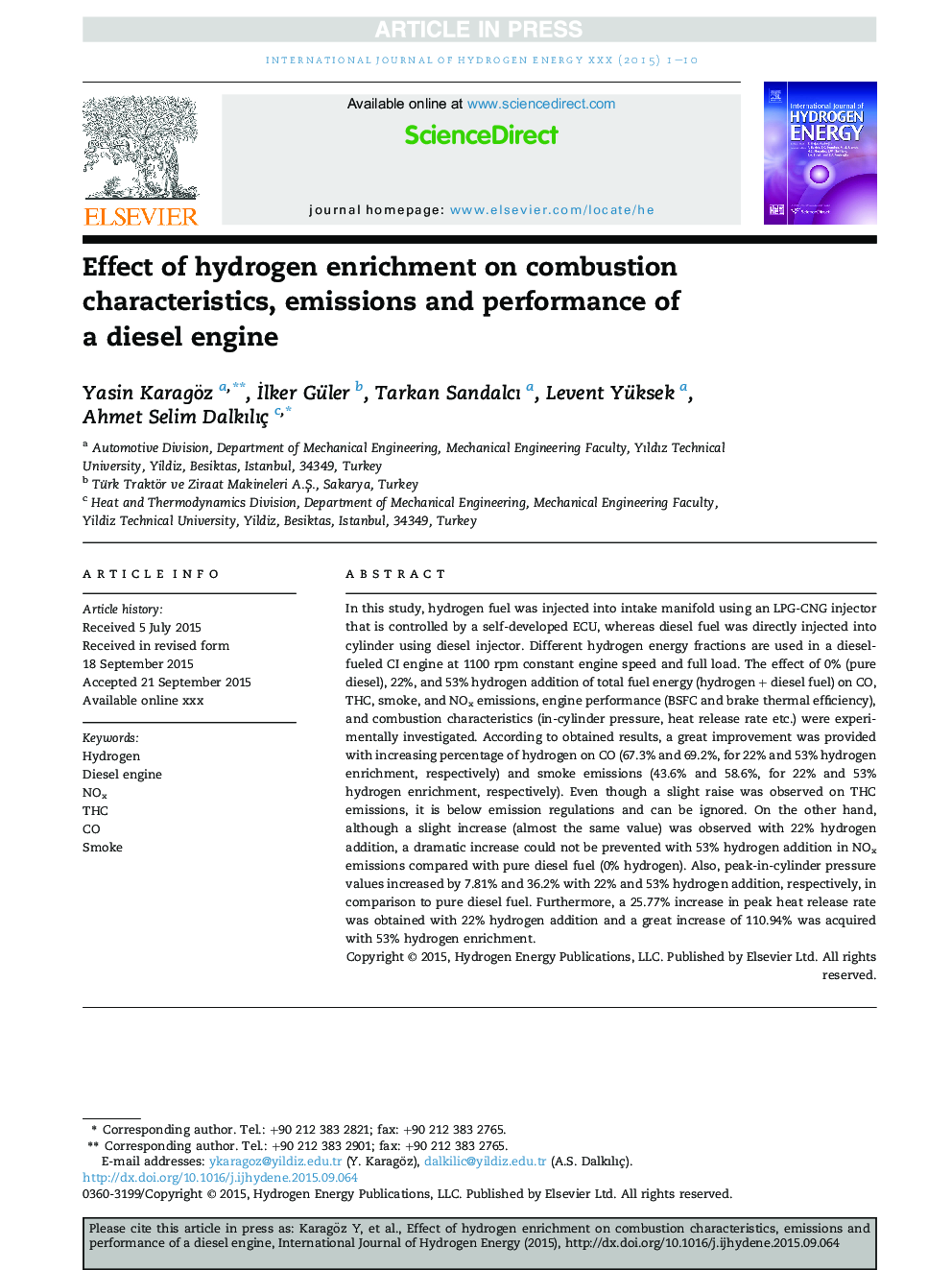| Article ID | Journal | Published Year | Pages | File Type |
|---|---|---|---|---|
| 7713011 | International Journal of Hydrogen Energy | 2016 | 10 Pages |
Abstract
In this study, hydrogen fuel was injected into intake manifold using an LPG-CNG injector that is controlled by a self-developed ECU, whereas diesel fuel was directly injected into cylinder using diesel injector. Different hydrogen energy fractions are used in a diesel-fueled CI engine at 1100 rpm constant engine speed and full load. The effect of 0% (pure diesel), 22%, and 53% hydrogen addition of total fuel energy (hydrogen + diesel fuel) on CO, THC, smoke, and NOx emissions, engine performance (BSFC and brake thermal efficiency), and combustion characteristics (in-cylinder pressure, heat release rate etc.) were experimentally investigated. According to obtained results, a great improvement was provided with increasing percentage of hydrogen on CO (67.3% and 69.2%, for 22% and 53% hydrogen enrichment, respectively) and smoke emissions (43.6% and 58.6%, for 22% and 53% hydrogen enrichment, respectively). Even though a slight raise was observed on THC emissions, it is below emission regulations and can be ignored. On the other hand, although a slight increase (almost the same value) was observed with 22% hydrogen addition, a dramatic increase could not be prevented with 53% hydrogen addition in NOx emissions compared with pure diesel fuel (0% hydrogen). Also, peak-in-cylinder pressure values increased by 7.81% and 36.2% with 22% and 53% hydrogen addition, respectively, in comparison to pure diesel fuel. Furthermore, a 25.77% increase in peak heat release rate was obtained with 22% hydrogen addition and a great increase of 110.94% was acquired with 53% hydrogen enrichment.
Keywords
Related Topics
Physical Sciences and Engineering
Chemistry
Electrochemistry
Authors
Yasin Karagöz, Ä°lker Güler, Tarkan Sandalcı, Levent Yüksek, Ahmet Selim Dalkılıç,
